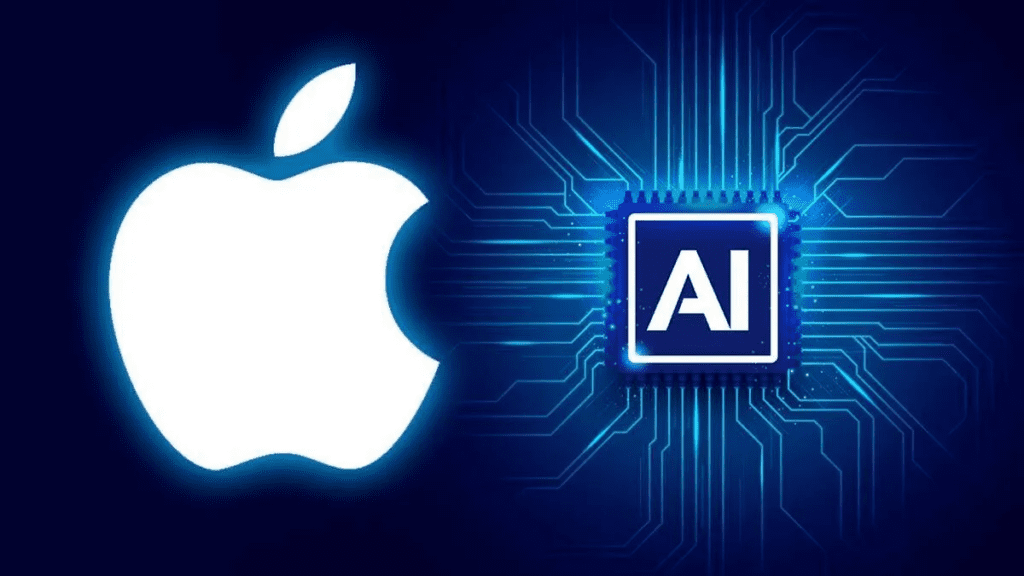
Imagine a future where your device anticipates your needs before you even express them. This is the reality Apple is shaping with its groundbreaking AI advancements. Apple, a longstanding leader in integrating AI into consumer technology, is pushing the boundaries once again, promising unprecedented levels of performance, personalization, and security.
A Legacy of Innovation: From Siri to Apple Intelligence
AI has undergone a remarkable transformation, evolving from basic computations to sophisticated algorithms capable of understanding natural language and processing complex data. Apple, at the forefront of this evolution, introduced Siri in 2011, marking a pivotal moment in AI accessibility. Siri’s ability to interact with users through voice commands paved the way for further advancements.
In 2017, Apple introduced Core ML, empowering developers to integrate AI functionalities into their apps. This framework unleashed a wave of AI-driven applications, revolutionizing everything from user recommendations to security protocols. The recent WWDC24 keynote revealed Apple’s next chapter in AI: Apple Intelligence. This initiative emphasizes on-device processing, ensuring user data remains private and secure. Furthermore, Apple Intelligence employs context-aware AI, tailoring your experience based on personal preferences and routines. Imagine your device intuitively suggesting your favorite playlist for your evening commute, or automatically optimizing battery life based on your usage patterns. This level of contextual understanding is the cornerstone of Apple Intelligence.
Unleashing the Power of AI: Performance, Personalization, and Security
Apple’s AI algorithms have revolutionized device operations, optimizing system processes and resource allocation for unparalleled responsiveness, even under heavy workloads. This translates to seamless performance and extended battery life, without compromising functionality. For instance, AI can pre-load frequently used apps, anticipating your needs and streamlining the user experience. Additionally, AI manages background processes, ensuring your device remains smooth and efficient, regardless of how many applications you’re running concurrently.
Personalization Redefined: A User-Centric Experience
iOS 18 elevates personalization to a new level, allowing you to customize your Home Screen based on your preferences. From the Photos app’s enhanced organization capabilities, powered by AI-driven facial recognition and smart album creation, to the ability to curate custom widget layouts, iOS 18 empowers you to create a truly personalized interface. Moreover, iMessage embraces AI with dynamic text effects, adding a playful touch to your conversations. The Control Center also utilizes AI, providing quick access to frequently used settings and apps based on your usage patterns. The result? A device that feels like an extension of yourself, anticipating your needs and responding intuitively.
Privacy by Design: Security at the Forefront
Apple’s unwavering commitment to user privacy underpins their AI approach. On-device processing ensures that your data never leaves your device unless explicitly authorized, placing you in control of your information. AI also plays a crucial role in secure data processing, employing encrypted communication and local analysis to safeguard user information. This commitment to privacy is reflected in Apple’s reputation for fewer data breaches and a higher level of user trust compared to competitors. This sets a benchmark for the industry, demonstrating how AI can coexist with robust security and privacy practices.
Generative AI: A Glimpse into the Future
Apple’s vision extends beyond current functionalities, embracing the potential of generative AI tools like ChatGPT. Generative AI unlocks a world of possibilities, from personalized content recommendations and artistic exploration to AI-assisted content creation. Imagine tailoring your device wallpaper with generative AI or letting AI curate a playlist based on your mood. Furthermore, generative AI holds immense potential for creative fields, empowering artists, musicians, and writers to explore new avenues and augment their creative processes. However, Apple acknowledges the importance of ethical considerations surrounding fairness and unbiased content generation, and is committed to addressing these issues through rigorous testing and transparency.
Market Trends and Apple’s Spearheading Role
The global AI market is projected to experience significant growth in the coming years, reflecting the increasing demand for AI-powered applications and widespread adoption across industries. Apple, recognizing this potential, has actively invested in AI research and development through strategic acquisitions of companies like Xnor.ai (efficient edge AI) and Voysis (voice recognition). These acquisitions have enabled Apple to integrate cutting-edge AI technologies into its products, solidifying its position as a leader in AI innovation. Furthermore, dedicated AI labs and research centers attract top talent worldwide, ensuring Apple remains at the forefront of technological advancement.
Challenges and the Path Forward
Developing and implementing sophisticated AI systems is not without its challenges. Technical hurdles like improving accuracy, minimizing latency, and seamless device integration require ongoing innovation. AI systems must also process vast amounts of data efficiently, demanding advanced algorithms and significant computational power. Additionally, ethical considerations regarding data privacy and AI bias remain paramount.




